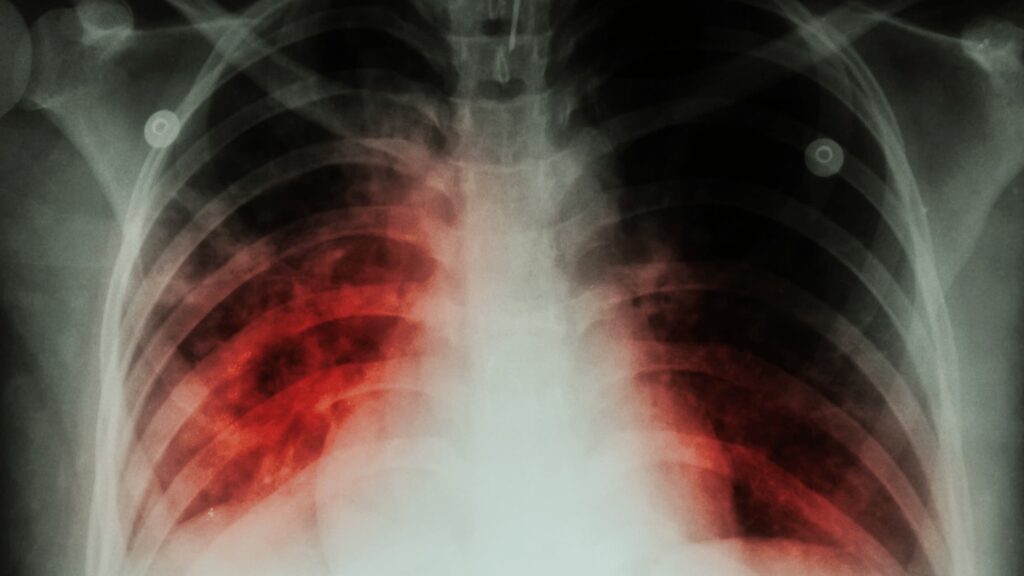
Table of Contents
Cabinet Decree 7/2008 stipulates that migrants seeking employment must undergo medical exams to detect infectious diseases (including HIV/TB/HCV). Cabinet Decree 5/2016 further demands that migrants seeking annual renewal of residence permits must undergo medical examinations. First time migrants found to have any lung scars on chest X-Rays are declared medically unfit, forcibly deported, and issued with a lifetime ban to entering the UAE. Those found to have lung scars on X-rays during visa renewal procedures are diagnosed and treated in the UAE, in some cases under involuntary isolation.
Lung Scars and Permanent Bans in UAE
Lung scars can result from tuberculosis, a past case of tuberculosis, or other conditions, and it is not possible to differentiate the cause with the diagnostic tool used. Individuals who never had TB or TB symptoms, but did have lung scars from previous respiratory conditions, were deported. These policies have the potential to impact many individuals. In Abu Dhabi alone (one of nine emirates) in 2022, there were 400 new visa applicants (an unknown number of whom are already in the country) and 199 renewal applications where TB was detected.
Under the law, the new visa applicants in the country at the time would be subject to deportation in the case of TB, while migrant workers renewing their visas would be required to undergo mandatory hospitalization. Aiming to encourage people with TB to come forward for health care, a new rule introduced in 2016 (Decree No. 5/2016) imposed testing requirements for visa renewals, previously only required for first-time visa applicants, as well as treatment and involuntary hospitalization requirements for renewal migrant workers with TB, under threat of deportation. Those unable to complete the treatment are rendered medically unfit and deported to their home country; visa renewals are conditional on treatment success.
Many people have been banned from moving to the UAE because of Tuberculosis. In the UAE, foreigners must pass a medical examination before they are allowed to enter region to work or live, with a TB check-up being one of the mandatory tests to be conducted. Once one is found with TB scarring in their lungs, their visa application is immediately turned down forever. It is possible, however, to have the ban reviewed and even lifted under certain conditions.
Why people with tuberculosis can be banned in the UAE?
Tuberculosis (TB) is among the top 10 causes of death worldwide and the leading cause of death among infectious diseases. Migration—from one country to another or within a country—increases vulnerability to TB acquisition, disease and death. Migrants’ vulnerability to TB extends across the breadth of their journey, beginning in the country of origin and spanning each and every stage to their destination and can persist for many years after their journey itself.
Additional Tests Required
In order to move to the United Arab Emirates and live there, additional medical tests besides tuberculosis must also be performed. These include hepatitis, HIV, hepatitis B, syphilis and pregnancy. Pregnancy tests are for women who want to work as a maid, hairdresser or cook while living in the UAE. Those who work in the area must also make regular visits to various health centers for regular medical examinations, including tuberculosis examinations. If people living in the United Arab Emirates miss three TB tests in a row, they will be deported.
How to lift the lifetime ban resulting from tuberculosis scars?
If you are diagnosed with TB, you usually cannot enter the UAE, so the only chance you need to appeal is to show that you are free of TB (according to UAE Cabinet Resolution No. 5 of 2016). This can be done once a MOH certified doctor confirms that the TB lesions on your lungs are gone.
- Start with a TB blood test at a GAMCA approved health facility in your home country. You’ll be given a chest x-ray to test for TB. It’s best to give a sputum sample as well (phlegm coughed up from your lungs). If your test shows that you do not have TB, you’ll be given a certificate which is principally valid for 6 months from the date of your x-ray.
- Submit and attest the original of this certificate with the Home Dept of State of your home country, the UAE embassy in your country, the Ministry of Foreign Affairs in the UAE, and finally the Ministry of Health.
- The Attested Certificate (in original), along with a copy of your passport and your Unfit Certificate resultant from your last medical examination will have to be submitted to the Community health clinic where the grievant was issued with an unfit certificate. You will require to submit these documents through a POA grantee and which is mandatory.
NEED HELP IN LIFTING TUBERCULOSIS BANS?
Consult an Immigration Lawyer Today
What Happens Next?
Your TB test results will be forwarded to the health facility that first diagnosed you with the TB scarring that led to your ban for verification. This process occurs if you were deported from the UAE after your diagnosis.
Some diseases and conditions are illegal in the UAE, and this includes tuberculosis. Any foreigner or resident who has been diagnosed with a certain type of TB may be banned from entering the country for a period of years or indefinitely. People who have been diagnosed with a certain type of TB are banned from entering the UAE for a period of years or indefinitely. However, there are exceptions to this general rule. For example, residents and tourists who have been diagnosed with TB may be allowed into the country provided that they take medication and undertake treatment. According to the Ministry of Health, medical doctors will determine if any person is allowed to enter the country and work out an individualized treatment plan that fits their needs. The bottom line is that it is important for individuals who have been diagnosed with a certain type of TB to seek medical attention as soon as possible so that they can start treatment and avoid being banned from entering the country.
Does the same policy apply to HIV/AIDS and hepatitis C virus sufferers?
The UAE has a permanent immigration ban for people with tuberculosis (TB), HIV/AIDS, and hepatitis C virus. This ban applies to all people wishing to enter the UAE, including those who are traveling for business or pleasure. The ban is in place to protect the public health of the UAE and prevent the spread of these diseases. However, there are some exceptions to this policy. People with TB may be allowed to enter the UAE if they have a valid medical certificate from their home country stating that they are not contagious and have been successfully treated for TB.
People with HIV/AIDS or hepatitis C virus may be allowed to enter the UAE if they have a valid medical certificate from their home country stating that they do not pose a risk of transmitting the disease and have been successfully treated for it.





